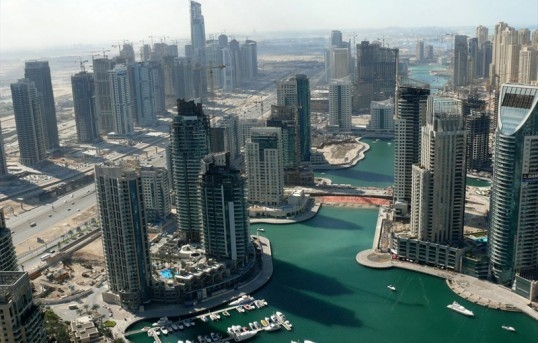Despite heightened regional geopolitical risks, four out of six GCC countries and the UAE in particular are poised to witness robust economic growth this year in comparison to the previous year, revealed a study by Dubai Chamber of Commerce and Industry.
The latest International Monetary Fund (IMF) data, combined with data from national authorities, indicated that the UAE will see a year on year GDP growth of 4.5 percent in 2012 while Kuwait, Oman and Bahrain will record a year on year growth of 4.9 percent, 4 percent and 3 percent in 2012 respectively. The study said that upward trajectory of oil prices should strengthen the fiscal and current account balances of GCC countries.
In Saudi Arabia, Kuwait and the UAE, larger fiscal surpluses and greater accumulation of reserves are projected. As such, for the GCC as a whole, IMF projects that fiscal and current account surpluses will stand at 13.1 percent and 22.2 percent of GDP in 2012 respectively.
The study further states that regional growth is supported by its ongoing expansionary fiscal policies. This is the reason why Saudi Arabia, according to its 2012 budget, is expected to raise spending by an additional 2.4 percent this year on top of a 23 percent increase last year, while Qatar and Kuwait are also expected to increase spending in their 2012-2013 budgets.
Higher allocations to current public spending, notably on wages such as those recently announced in the UAE and Kuwait, will boost domestic demand and non-hydrocarbon growth.
In fact, non-hydrocarbon growth reached a record high in Saudi Arabia in 2011 increasing by 7.8 percent year on year, while it is projected to remain at high levels in 2012 with 5.3 percent year on year increase.
Similar trends are projected to take place in Kuwait and Oman, where fiscal spending has been on the rise. In UAE, the upward trajectory of the non-hydrocarbon sector remains elevated in 2012 as projected to increase by 3.9 percent year on year from 3.3 percent in 2011 and 2.1 percent in 2010.
Focusing on the developments of UAE economy, recent announcements indicate a general increase in consolidated public spending. On the one hand, the UAE government has announced increases in federal wages and pensions in addition to an AED 10 billion fund to be used to pay down debts of low income UAE nationals.
On the other hand, the Abu Dhabi Executive Council (ADEC) has ratified its investment strategy pointing out the need to finalise a number of projects such as the Khalifa Port and the development of the Khalifa Industrial Zone. Added to that, the UAE government has recently allocated additional AED 16.8 bn ($ 4.6 bn) in support of Aldar through property purchases and debt cancellation.
Contrary to the above investment pattern, Dubai's primal target remains its commitment to fiscal consolidation. According to Dubai Department of Finance, the emirate's fiscal efforts resulted in an estimated reduction in spending by 4.4 percent of total public expenditure in comparison to the 2011 budget, while the infrastructure, transportation and economic development sector took up 41 percent of total public expenditure.
Last but not least, the 29 percent of the total public expenditure will be allocated to the social development sector including areas of health care, education, housing and culture. Moreover, Dubai's GDP growth projection in 2012Q1 was over 4 percent, whereas according to available estimates, it grew by more than 3 percent in 2011 and by about 2.5 percent in 2010.
The study reveals that the main driver behind the emirates' economic prosperity is the strategy of generating new business opportunities through diversification. Specifically, the emirate's economic prosperity and stability has been focused on the trade, tourism and logistics sectors supported by its buoyant infrastructure and its growing reputation as an international business hub.
Together, logistics, trade, tourism, and transportation accounted for almost 60 percent of Dubai's GDP in 2011. The aforementioned sectors have recorded substantial growth backed by the significant increase in passenger traffic through Dubai International Airport in 2010 and 2011.
The study highlights the need for policymakers to further enhance diversification in UAE, which will help boost economic growth and prosperity, while enhancing the competitiveness and productivity levels of the economy.
Arab News
25 June
























































